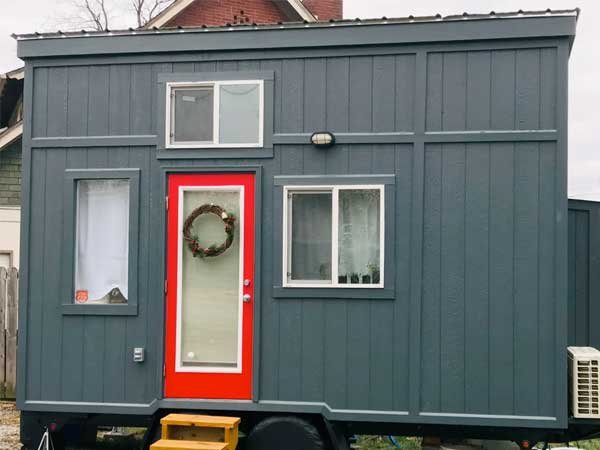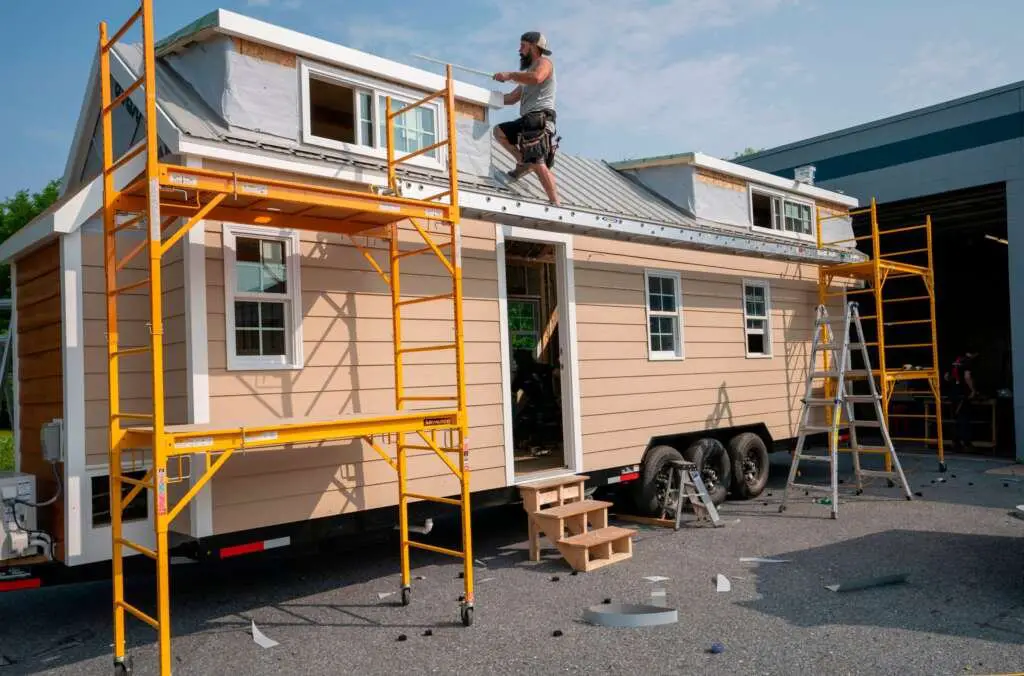Did you know that tiny homes are a popular trend sweeping the nation? People are opting for smaller, more minimalist living spaces to reduce their carbon footprint and simplify their lives. But if you’re a Pennsylvania resident looking to join the tiny home movement, you might be wondering if these cozy abodes are legal in your state. In this article, we’ll explore the legalities surrounding tiny homes in Pennsylvania and help you determine if this housing option is a viable one for you. So, let’s dive in and find out if you can make your tiny home dreams come true in the Keystone State.
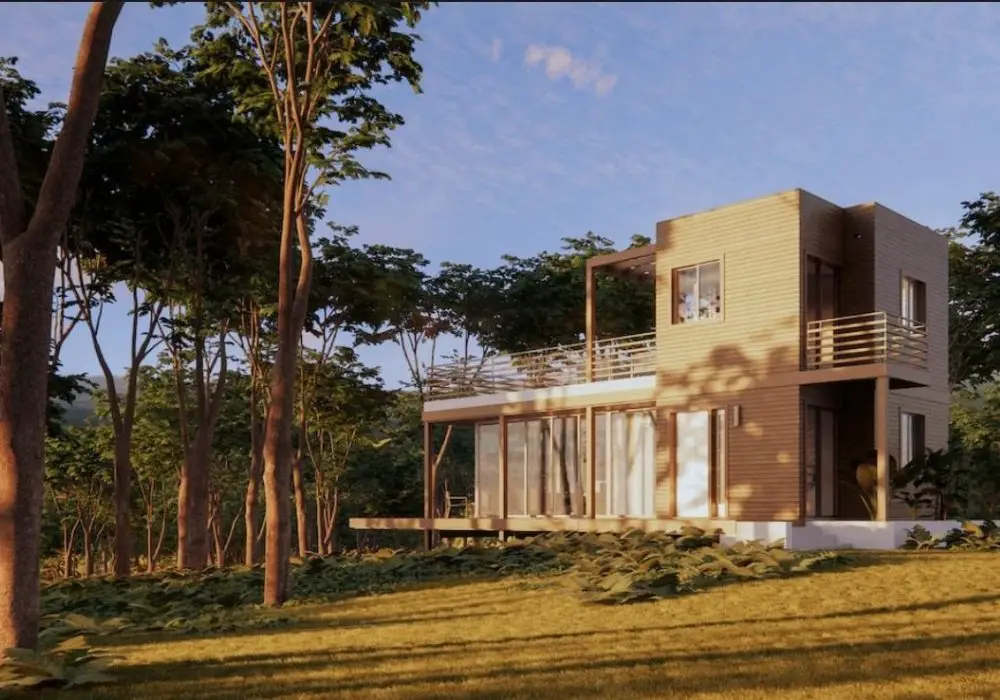
Overview of Tiny Homes
Definition of tiny homes
Tiny homes, also known as micro homes or mini houses, are small, often portable dwellings that typically span less than 500 square feet. They are designed to maximize space efficiency and offer a simplified, minimalist lifestyle. These homes often prioritize functionality and creative design solutions to optimize limited living space.
Popularity of tiny homes
In recent years, tiny homes have gained immense popularity across the United States, including in Pennsylvania. The allure of these compact living spaces lies in their affordability, sustainability, and the freedom they provide from excessive material possessions. Many people are attracted to the idea of downsizing, reducing their environmental footprint, and embracing a more minimalist lifestyle.
Benefits of living in a tiny home
Living in a tiny home offers a range of benefits. Firstly, they provide financial freedom, as the cost of owning and maintaining a tiny home is significantly lower compared to conventional housing. Additionally, the reduced living space encourages individuals to declutter their lives and focus on what truly matters, fostering a sense of simplicity and mindfulness. Moreover, tiny homes are often more sustainable, requiring fewer resources to build and minimizing energy consumption.
Zoning and Building Codes
Understanding zoning laws in Pennsylvania
Zoning laws in Pennsylvania regulate land use and govern where certain types of buildings or homes can be located. These laws are crucial in determining the legality and allowable use of tiny homes within specific areas. It is important for prospective tiny home owners to familiarize themselves with the zoning regulations in their desired location.
Building codes and regulations
Building codes are a set of standards that establish minimum requirements for construction and ensure the safety and welfare of occupants. In Pennsylvania, building codes are typically adopted and enforced at the local level. Compliance with these codes is essential when constructing or renovating a tiny home to ensure it meets the necessary structural and safety criteria.
Zoning and building requirements for tiny homes
The zoning and building requirements for tiny homes vary across different municipalities in Pennsylvania. Some areas may have specific regulations addressing tiny homes, while others may not have explicit provisions. Factors such as minimum square footage, foundation type, and proximity to existing structures may influence the legality and construction requirements of tiny homes in each jurisdiction. It is essential to consult local zoning and building officials to understand the specific rules that apply.
Legal Considerations
Classification of tiny homes
Determining the legal classification of a tiny home is a crucial consideration. In Pennsylvania, tiny homes can be classified in various ways, such as recreational vehicles (RVs), mobile homes, or accessory dwelling units (ADUs). Each classification has its own set of regulations and requirements, which may impact where and how a tiny home can be legally placed.
Permitting and licensing
Obtaining the necessary permits and licenses is an important step in adhering to legal requirements when building or placing a tiny home. The specific permits needed will depend on the classification of the tiny home and the intended use. It is advisable to consult local authorities to ensure compliance with all necessary permits and licenses.
Legal challenges and court cases
Legal challenges pertaining to tiny homes have emerged in Pennsylvania and other states. These challenges often revolve around zoning and building code interpretations, as well as the classification of tiny homes. Court cases have helped shape the legal landscape for tiny homes, and their outcomes can influence future regulations and interpretations.
Local Regulations
City regulations
Various cities in Pennsylvania have different regulations regarding the construction and placement of tiny homes. For example, the city of Philadelphia has specific regulations for “accessory dwelling units” that may allow for tiny homes as secondary dwellings on a property. However, it is crucial to research the specific regulations in each city as they can significantly vary.
County regulations
County regulations may also impact the legality and placement of tiny homes within Pennsylvania. Some counties may impose stricter zoning restrictions or specific requirements, while others may have more lenient regulations. Exploring the county regulations is essential when considering where to locate a tiny home.
Municipalities with specific tiny home regulations
Several municipalities in Pennsylvania have adopted specific regulations for tiny homes, acknowledging their unique housing option. For instance, the municipality of Warrington has established guidelines for accessory dwelling units, allowing for the possibility of tiny homes within their jurisdiction. Researching municipalities with existing regulations can provide insights into areas where tiny homes may be legally placed.
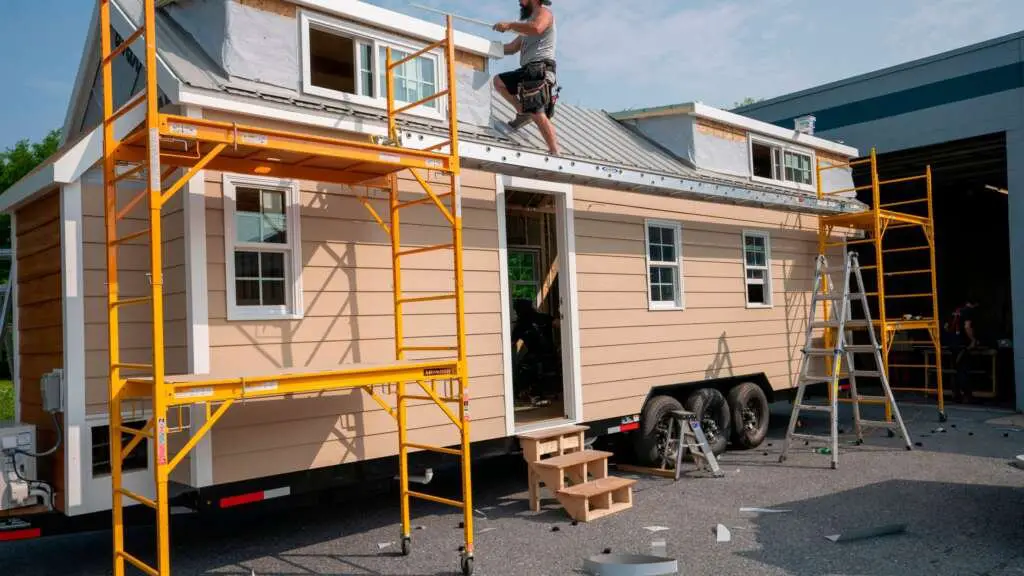
Advocacy and Awareness
Advocacy groups in Pennsylvania
Pennsylvania is home to several advocacy groups dedicated to promoting and supporting the tiny home movement. These organizations work towards raising awareness, educating policymakers, and advocating for changes in zoning laws and regulations. Joining or supporting these groups can provide individuals with valuable resources and a sense of community.
Educating communities and policymakers
Efforts to educate communities and policymakers about the benefits of tiny homes play a crucial role in fostering change. This can be achieved through public forums, workshops, and informational campaigns that highlight the advantages of tiny homes as a housing alternative. By engaging in constructive conversations, it is possible to challenge misguided perceptions and encourage the adoption of more accommodating regulations.
Efforts to change zoning laws
Advocacy groups and individuals in Pennsylvania continue to push for changes in zoning laws to accommodate tiny homes. These efforts aim to broaden the range of housing options available to residents and provide more flexibility in sustainable living choices. Engaging in these initiatives, such as contacting local representatives or participating in public hearings, can contribute to the ongoing conversation surrounding zoning law reform.
Financial Considerations
Cost of owning a tiny home
One of the most significant advantages of living in a tiny home is the potential for reduced costs. Tiny homes generally have a lower purchase price compared to conventional homes, and the expenses associated with maintenance, utilities, and property taxes are often significantly lower. However, it is important to consider the long-term financial implications and ensure that one’s budget aligns with the expenses and lifestyle of tiny home living.
Financing options
Financing a tiny home can be different from traditional home financing methods. While mortgages are not always available for tiny homes, alternative financing options such as personal loans, RV loans, or construction loans may be viable. Researching different financing avenues and consulting with financial institutions familiar with tiny homes can help prospective owners find suitable financing options.
Tax implications
Tiny homes can have unique tax implications, and it is crucial to understand the potential tax obligations associated with owning and residing in one. Factors such as classification, location, and usage may influence property tax assessments and eligibility for certain tax incentives or deductions. Seeking professional advice from a qualified tax professional can provide clarity and ensure compliance with tax regulations.
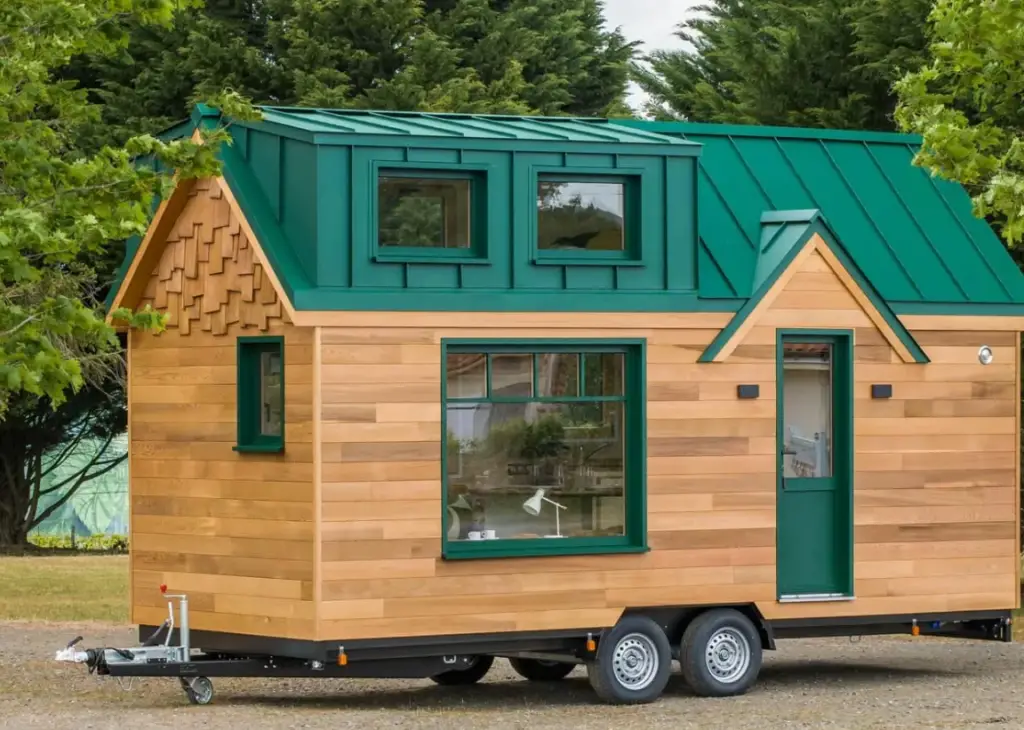
Utilities and Off-Grid Living
Connecting to utilities
Most tiny homes in Pennsylvania are designed to be fully functional and can be connected to traditional utilities such as electricity, water, and sewage systems. However, it is essential to consider the infrastructure available in the desired location and ensure that adequate connections can be established. Consulting with utility providers and understanding the associated costs and requirements is crucial when planning a tiny home installation.
Off-grid alternatives
Off-grid living, which involves self-sufficiency in terms of energy, water, and waste disposal, is also an option for tiny home residents. In Pennsylvania, individuals can explore alternative energy sources such as solar power or rainwater collection systems to minimize reliance on traditional utilities. However, it is essential to understand the legalities and limitations of off-grid living, particularly regarding building codes and health regulations.
Sustainability practices
Tiny homes inherently promote sustainable living practices due to their small size and reduced energy consumption. Residents can further enhance sustainability by incorporating eco-friendly features and practices within their tiny homes, such as using renewable materials, implementing efficient insulation and heating systems, and practicing responsible waste management. Adopting sustainable practices not only benefits the environment but also aligns with the principles of tiny home living.
Tiny Home Communities
Existing tiny home communities in Pennsylvania
Pennsylvania is home to several thriving tiny home communities, providing residents with a sense of camaraderie, shared resources, and a supportive environment. These communities often offer shared amenities, such as communal gardens, meeting spaces, and recreational areas, fostering a strong sense of community. Some well-known tiny home communities in Pennsylvania include the Lancaster Tiny Home Community and the Pottsville Tiny Estates.
Benefits of tiny home communities
Tiny home communities offer numerous benefits beyond the physical dwelling itself. By living in a tight-knit community, residents can forge meaningful connections, participate in shared activities and events, and create a supportive network. Sharing resources and communal spaces also enhances the overall quality of life and provides opportunities for collaboration and cooperation.
Developing future communities
The popularity of tiny homes has sparked interest in the development of additional tiny home communities in Pennsylvania. As the demand for affordable and sustainable housing options continues to grow, it is likely that more communities will be established throughout the state. These developments can provide opportunities for individuals interested in joining a tiny home community or those looking to invest in this alternative housing option.
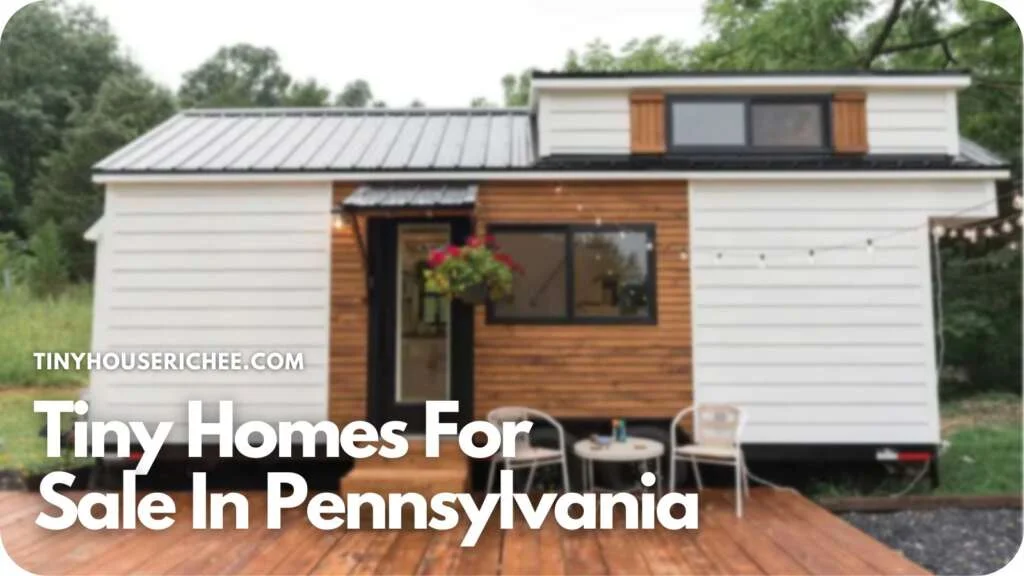
Problems and Controversy
Neighborhood complaints
Despite the growing acceptance and popularity of tiny homes, they can still face opposition in some neighborhoods. Concerns may arise regarding the aesthetics, property values, or impact on the overall character of a neighborhood. Engaging in open dialogue with neighbors, addressing concerns, and sharing success stories of well-integrated tiny homes can help dispel misconceptions and alleviate potential neighborhood complaints.
Health and safety concerns
As with any type of housing, health and safety concerns are essential considerations. Ensuring that a tiny home meets all necessary building and safety codes is crucial to protect the well-being of its occupants. Proper ventilation, appropriate fire safety measures, and compliance with electrical and plumbing requirements are some factors that must be addressed to ensure a safe and healthy living environment.
Effects on property values
The potential impact of tiny homes on property values is a topic of discussion and debate. While some argue that the presence of tiny homes can have a positive effect on property values by diversifying the housing market and increasing affordability, others express concerns about perceived lower property values due to the unconventional nature of tiny homes. In reality, the impact on property values is highly dependent on the specific location, local market conditions, and the integration of tiny homes within the existing neighborhood.
Conclusion
Tiny homes have captured the imagination and interest of many individuals seeking a simpler, more sustainable way of life. While the legality and regulations surrounding tiny homes in Pennsylvania can be complex and vary across municipalities, there are avenues for those who are passionate about embracing this alternative housing option. By understanding the zoning laws, building codes, and legal considerations, individuals can navigate the path towards tiny home ownership. Through advocacy, education, and the development of tiny home communities, Pennsylvania can continue to embrace the benefits and possibilities offered by tiny homes. With careful planning and a supportive community, living in a tiny home can be a fulfilling and rewarding lifestyle choice.
